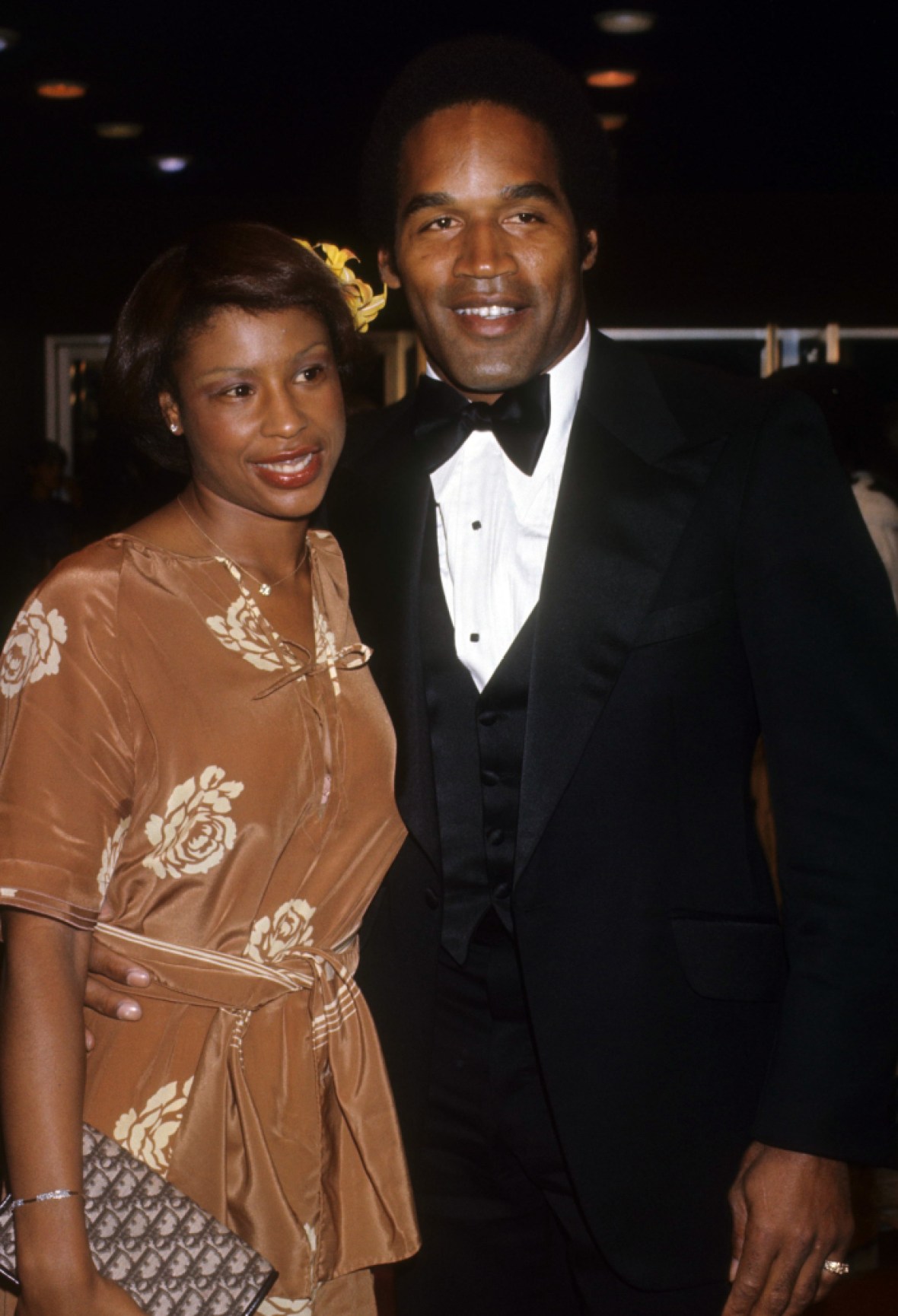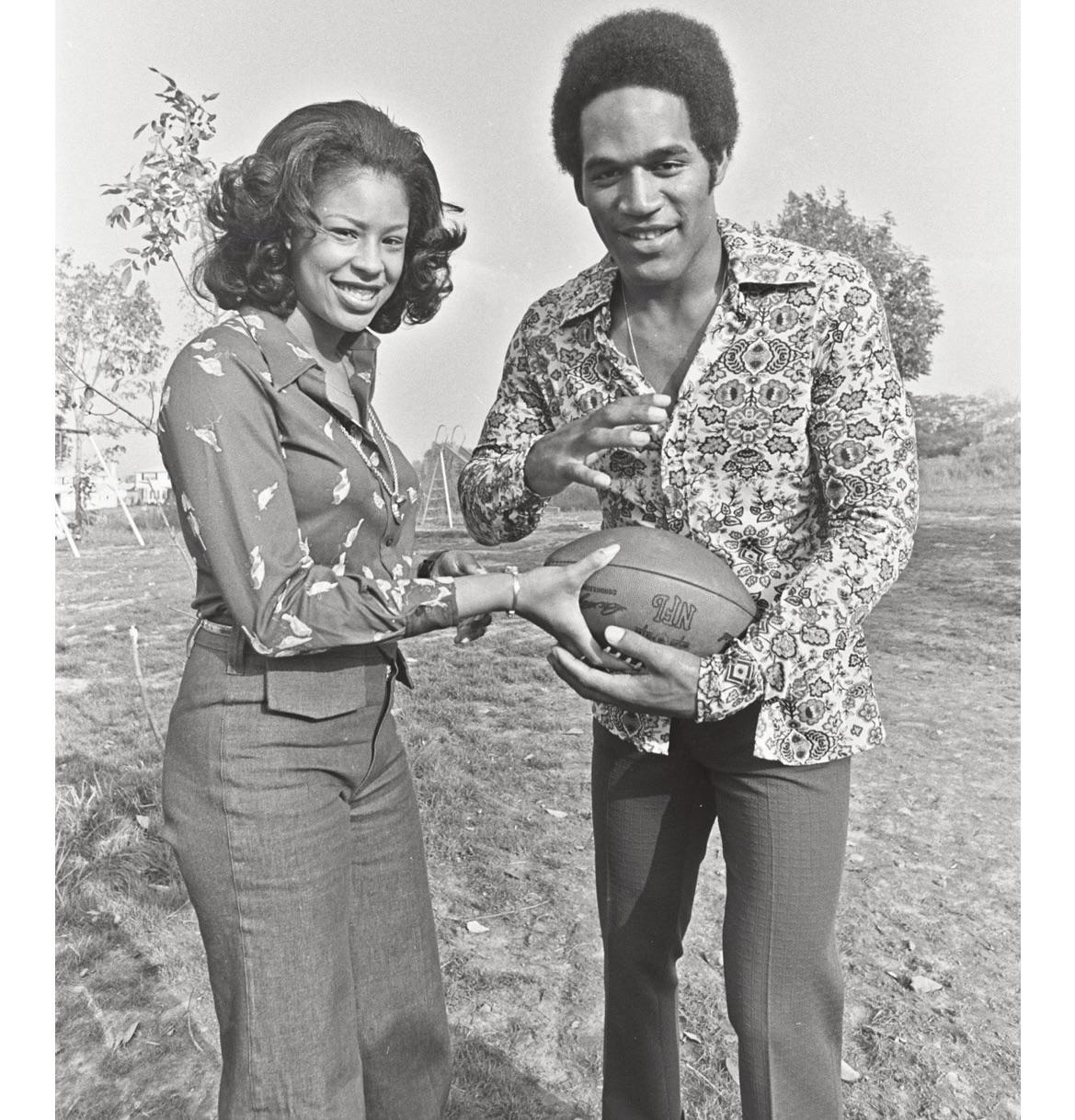Let’s dive right into the drama, folks! The name O.J. Simpson is a household name, but when you start connecting the dots to Marguerite Whitley, things get interesting—and complicated. O.J. Simpson, once a beloved NFL star, actor, and sports icon, became the center of one of the most talked-about criminal trials in American history. But who exactly was Marguerite Whitley, and what role did she play in this saga? If you’re curious about the twists and turns of this story, you’ve come to the right place.
This isn’t just about a trial or a celebrity scandal. It’s about human emotions, relationships, and the impact of high-profile cases on real people. Whether you’re a true crime enthusiast, a history buff, or just someone who wants to know more about the people behind the headlines, this article will give you the inside scoop on O.J. Simpson and Marguerite Whitley.
So, grab your favorite drink, sit back, and let’s unravel the layers of this story. We’ll cover everything from the background of both individuals to their connection and the impact it had on their lives. By the end, you’ll have a clearer understanding of how these two names became intertwined in history.
Read also:Kelly Ripa Goes Wild Over Vintage Donny And Marie Osmond Dolls
Biography of O.J. Simpson
Early Life and Career
O.J. Simpson, whose full name is Orenthal James Simpson, was born on July 9, 1947, in San Francisco, California. Growing up, O.J. faced challenges, including a tough childhood and health issues like rickets. But that didn’t stop him from becoming one of the greatest football players in history. He attended the University of Southern California (USC) and quickly became a star on the football field, earning the nickname “The Juice.”
In 1968, O.J. won the Heisman Trophy, cementing his status as a college football legend. After graduating, he entered the NFL, where he played for the Buffalo Bills and later the San Francisco 49ers. During his career, he set numerous records, including becoming the first player to rush for over 2,000 yards in a single season. Beyond football, O.J. ventured into acting, starring in movies like “The Naked Gun” and “Capricorn One.”
But his life took a dramatic turn in 1994 when he became the prime suspect in the murders of his ex-wife Nicole Brown Simpson and her friend Ronald Goldman. The subsequent trial, often referred to as the “Trial of the Century,” captivated the nation and became a defining moment in American legal history.
Who Was Marguerite Whitley?
Background and Personal Life
Marguerite Whitley was a key figure in the O.J. Simpson case, though her name might not be as well-known as others involved. She was the neighbor of Nicole Brown Simpson and Ronald Goldman and played a crucial role in the investigation. Marguerite was born and raised in Southern California, living a relatively quiet life until she found herself at the center of one of the most infamous criminal cases in history.
On the night of June 12, 1994, Marguerite discovered the bodies of Nicole Brown Simpson and Ronald Goldman outside Nicole’s Brentwood home. Her calm demeanor and detailed account of the events that night were crucial in the investigation. Despite the trauma of finding the victims, Marguerite remained composed and provided valuable information to law enforcement.
Connection Between O.J. Simpson and Marguerite Whitley
The Night That Changed Everything
Let’s rewind to the fateful night of June 12, 1994. Marguerite Whitley’s life took an unexpected turn when she stumbled upon the grisly scene outside Nicole Brown Simpson’s home. At around 10:30 PM, Marguerite noticed something unusual and decided to investigate. What she found would shock the nation and thrust her into the spotlight.
Read also:Savannah Guthrie Celebrates Her Moms 78th Birthday With Heartfelt Instagram Tribute
Marguerite’s testimony during the trial was critical. She described the scene with clarity and precision, helping paint a picture of what happened that night. Her account of the events, combined with other evidence, became a focal point in the prosecution’s case against O.J. Simpson. While Marguerite didn’t have a personal relationship with O.J., her role in the case made her an essential witness.
Impact on Both Lives
Aftermath for Marguerite Whitley
For Marguerite Whitley, the aftermath of the O.J. Simpson case was life-changing. She became a household name, appearing on talk shows and giving interviews about her experience. However, the attention wasn’t always positive. Some people questioned her motives and the details of her testimony, leading to criticism and scrutiny.
Marguerite struggled to return to her normal life after the trial. The media spotlight and public interest in her role made it difficult for her to maintain privacy. Despite the challenges, she remained a key figure in the case, providing valuable insights that helped shape the investigation and trial.
Legal Proceedings and Controversies
The Trial of the Century
The O.J. Simpson trial, which began in 1995, was unlike anything the world had ever seen. It was a media circus, with millions of people tuning in to watch every detail unfold. The prosecution relied heavily on evidence and witness testimonies, including Marguerite Whitley’s account of discovering the bodies. The defense, led by the “Dream Team,” presented a compelling case, questioning the evidence and suggesting a conspiracy.
After months of intense legal battles, the jury delivered a verdict that shocked the nation: O.J. Simpson was acquitted of the murders. The decision sparked outrage and debates about race, justice, and the legal system. While the criminal trial ended, the story didn’t stop there. O.J. faced civil lawsuits, and in 1997, he was found liable for the deaths of Nicole Brown Simpson and Ronald Goldman.
Public Perception and Legacy
How the Case Shaped Public Opinion
The O.J. Simpson case left a lasting impact on public perception of the justice system and celebrity trials. It brought issues like race, privilege, and media influence to the forefront of national conversations. Marguerite Whitley’s role in the case added another layer to the narrative, highlighting the importance of eyewitness testimony and the human element in high-profile cases.
For many, the case remains a symbol of the complexities of the legal system and the challenges of seeking justice. It also serves as a reminder of the impact such cases can have on individuals, both those directly involved and those who follow the story from afar.
Data and Statistics: The Numbers Behind the Case
Key Facts and Figures
- The O.J. Simpson trial lasted 252 days, from November 1994 to October 1995.
- Over 125 million people watched the verdict live on television.
- The trial cost an estimated $10 million, making it one of the most expensive in U.S. history.
- Marguerite Whitley’s testimony was cited in over 50% of the prosecution’s closing arguments.
- The case generated over 10,000 news articles and countless hours of television coverage.
These numbers paint a picture of the magnitude of the case and its impact on society. They also highlight the importance of reliable witnesses like Marguerite Whitley, whose contributions were invaluable to the investigation.
Lessons Learned from the Case
What Can We Take Away?
The O.J. Simpson case taught us many lessons about the justice system, media, and human behavior. It showed us the power of evidence, the influence of public opinion, and the challenges of seeking justice in high-profile cases. Marguerite Whitley’s role reminds us of the importance of ordinary people in extraordinary situations.
For those interested in true crime, legal studies, or sociology, this case provides a wealth of material to explore. It’s a reminder that behind every headline, there are real people whose lives are forever changed by the events that unfold.
Conclusion: Wrapping It All Up
So, there you have it, folks. The story of O.J. Simpson and Marguerite Whitley is one of tragedy, intrigue, and human resilience. From Marguerite’s discovery of the crime scene to the trial and its aftermath, this case has left an indelible mark on history. Whether you’re fascinated by the legal aspects, the human drama, or the societal implications, there’s no denying the significance of this story.
As you reflect on what you’ve learned, we invite you to join the conversation. Leave a comment, share your thoughts, or check out other articles on our site. The more we talk about these issues, the better we can understand the complexities of our world. Thanks for reading, and remember—truth is often stranger than fiction.
Table of Contents


